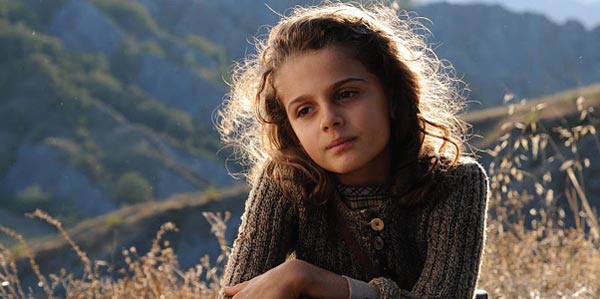 The Man Who Will Come is a film of potent and disturbing contrasts—the breathtaking beauty of the Italian countryside and the innocence of childhood, set against unfathomable evil and the darkness of the human soul that is often brought to life in war.
The Man Who Will Come is a film of potent and disturbing contrasts—the breathtaking beauty of the Italian countryside and the innocence of childhood, set against unfathomable evil and the darkness of the human soul that is often brought to life in war.
It is a tale created to depict an historical incident—a massacre of innocent civilians—that occurred during the later stages of World War II, in a mountain village near the Italian City of Bologna. Known as the Massacre of Mazabotto, it was a heinous war crime of particular brutality, in that of the over 700 people murdered, many were women, the elderly and children.
The film’s Director and Writer, Giorgio Diritti, adeptly captures the innocence, earthiness and simplicity of a people who, although apparently struggling for basic needs, seem set apart from the rest of the world’s troubles. The portrayal of the basic day-to-day peasant’s existence seems somehow appealing and comfortable at first. But this all changes.
The film is recounted primarily through the eyes of a young girl, Martina (Greta Zuccheri Montanari), who does not speak. The story gradually unfolds as Martina’s mother, Lena (Maya Sansa), is expecting another child.
The surrounding conflict that rages in the rest of the world is presented by mere hints at first, as we learn of the increasing bombing of the neighboring city of Bologna, and are introduced to a band of local underground resistance fighters, opposed to the Italian Fascists and their Nazi allies.
Martina has no understanding of who these foreign soldiers are or why they occasionally visit their village, buying eggs, wine and bread. “Why aren’t they at home with their own children?” she muses. Diritti masterfully blends scenes in ways that captivate, drawing you in through the eyes of a child. In one scene, Martina awakens in the middle of the night to a soft, distant sound of an airplane passing, high above. She peers out the window to witness the silent, ethereal fall of parachutes. The scene has a surreal quality that is altogether beautiful and terrifying at the same time.
The audience’s exposure to and realization of impending horror increases along with Martina’s. Stark, graphic reality assaults the audience just as it destroys the young girls’ last remnant of innocence, as she witnesses a captured Nazi soldier, forced to dig his own grave, then coldly executed.
The intensity of the film progresses, as the rebels’ agitations cause the Nazi intruders to over-react, eventually striking out with the mass murder of the innocent villagers. Martina becomes the conduit of hope for humanity, as she saves her infant brother from the tragedy. It is the infant child who will be the Man Who Will Come, as his life represents the survival of their people and a future of peace.
The film is extraordinary in its realistic portrayal of how common people, with no apparent political interest or ambition, are easily snared in the carelessly constructed, destructive webs of war, only to have their lives senselessly destroyed. Because of its historical context, the film well serves in reminding us that the kind of brutality and moral vacuum that permitted the atrocities we see in the The Man Who Will Come, are still very real and, unfortunately, the case, in many parts of our world today.
Leave a Reply